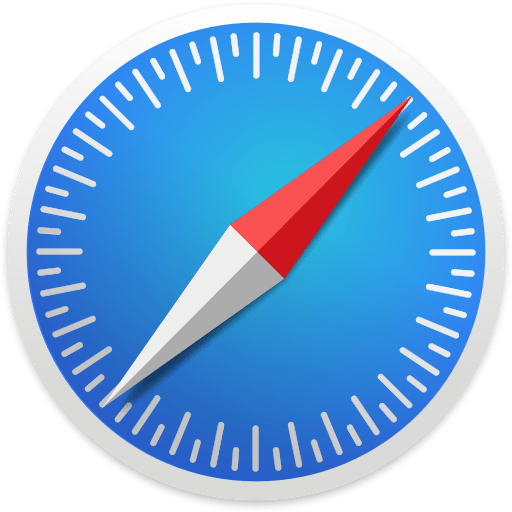Overview
The Application Server specifications outlined in this article are based on these server types:
- Production Server: a live environment where created processes are leveraged by end-users (customers)
- Non-Production Server: non-customer facing environment used for testing and development to assess production readiness
- Repository Server: non-customer-facing environment used to help maintain version control and migrate projects between servers
Browser Compatibility
Version 9 no longer has the Portal/Studio Designer divide found in prior versions. Chrome and Edge will always be compatible no matter what task needs to be accomplished. Firefox and Safari will be able to view applications that have been created, but will not be able to use the different designers to edit or create new content. For instance, a user that has been sent an assignment with a Form will be able to open it in Safari, but could not create a new Form or edit the Form.
| Feature |  Chrome Chrome |  Edge Edge |  Firefox Firefox |  Safari Safari |  Internet Explorer Internet Explorer |
|---|---|---|---|---|---|
| Designers (Flow, Rule, Reports, etc) | .png ) | .png ) |  |  |  |
| Run Time View (Pages, Reports, etc) | .png) | .png) | .png) | .png) |  |
Hardware Specifications
Consult expertise ahead of server deployment. The deploying organizations' Senior Database Administrator (DBA) should be involved in recommending resources.
Advanced specifications consider the following circumstances:
- Data-heavy environments
- Organizations with long procurement/change request cycles
| Server Type | Processing | Memory | Storage |
|---|---|---|---|
| Production | 3.0 GHz 4-Core CPU | 16 GB RAM | 100 GB |
| Non-Production | 4-Core CPU | 8 GB RAM | 100 GB |
| Repository | 4-Core CPU | 8 GB RAM | 100 GB |
| Enterprise | 8-Core CPU | 32 GB AM | Use case dependent |
Azure Specifications
| Server Type | Processing | Memory | Storage |
|---|---|---|---|
| Production | D-Series D4s v3 | 3.0 GHz 4-Core vCPU | 16 GB RAM | 150 GB |
| Non-Production | D-Series D4s v3 | 4-Core vCPU | 16 GB RAM | 150 GB |
| Repository | D-Series D4s v3 | 4-Core vCPU | 16 GB RAM | 100 GB |
Amazon Web Services (AWS) Specifications
| Server Type | Processing | Memory | Storage |
|---|---|---|---|
| Production | t3.xlarge | 4-Core CPU | 16 GB RAM | 100 GB |
| Non-Production | t3.xlarge | 4-Core CPU | 16 GB RAM | 50 GB |
| Repository | t3.xlarge | 4-Core CPU | 16 GB RAM | 50 GB |
Software Requirements
.NET Versions for Decisions: Since Decisions is built using .NET, it is mandatory to install the required .NET applications before proceeding with the Decisions installation.
.NET Core SDK: The application also utilizes the .NET Core 6.0 SDK to create Internal and External Web Service References, but it's important to note that this SDK is not necessary for running Decisions.
The Installer requires the most recent Windows Server operating system to run.
Database Server and Configuration
| Database Server Type | Server Version Required | Additional Information |
|---|---|---|
| SQL | SQL Server 2017 SPI Standard or newer | Required for v9.0 and above. |
Note:
| ||
| Azure | All supported | DB level of at least S3 or P1 is recommended to prevent timeouts for Decisions SQL queries, especially during installation. |
| AWS | - | DB level T3 is recommended for installation. |
| PostgreSQL | PostgreSQL 12/13 | Compatible with v9.0 and v9.1. |
| PostgreSQL 14 | Minimum requirement for v9.2 and above. | |
| PostgreSQL 15 | Supported in v9.0 and above. | |
| PostgreSQL 16 | Supported in v9.0 and above. | |
| PostgreSQL 17 | Not supported at this time. | |
It is recommended that Microsoft's standard SQL maintenance plan is utilized for database maintenance.
- It is acceptable to install the DB servers and Decisions on the same machine only for development and testing purposes.
- For the Production environment, it is strongly recommended to install the Decisions and DB servers on separate machines. It is advised to allocate at least 4 cores and 16 GB of RAM for the DB server.
Network Ports and Protocols
Depending on the chosen database server, Decisions uses the following default SQL port numbers to connect to the database server.
| Database Server Type | SQL Port |
|---|---|
| MSSQL | 1433 |
| Postgres | 5432 |
To modify the SQL port number, update the connection string syntax (myPortNumber) as follows:Server=myServerName,myPortNumber;Database=myDataBase;User Id=myUsername;Password=myPassword;
When installing locally, Decisions attempts to occupy the following default ports for users to host its service.
These port numbers may be configured during and after installation.
| Port | Usage |
|---|---|
| 80 | Assigned for HTTP connections |
| 443 | Assigned for HTTPS connections |
It is recommended to run Decisions via HTTPS for added security. Refer to the Securing a Decisions Installation for additional security methods.